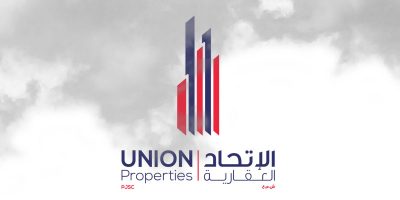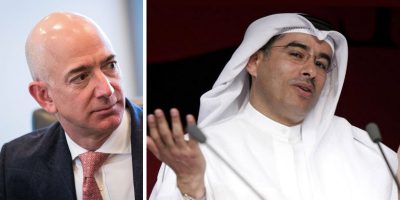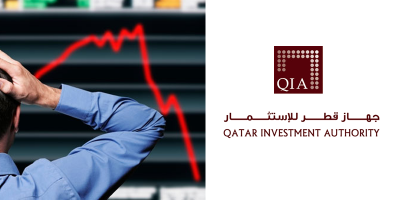Marka Holding (“Marka”) claims to be “the UAE’s first publicly traded retail operator focusing exclusively on the Fashion, Hospitality and Sports segments”. Marka was started by Khaled AlMheiri the co-founder of Dubai investment boutique Evolvence Capital.
The company began its life as one of three UAE greenfield IPOs that took place in 2014 (companies that had no previous trading history, Dubai Parks and Amanat were the other two). In each case the process started with a private placement to founding shareholders, then a public share offering followed by an immediate listing after the close of the offer.
All three IPOs were oversubscribed several times over however Dubai Parks and Amanat both immediately traded well below par value once listed. Marka has managed to stay above par since listed in 2014, albeit on very low volume partly due to the offering’s lock-up terms (which we’ll discuss later).
A total of $1.2bn in equity capital was raised in the formation of Marka, Amanat and Dubai Parks.
As an aside, in early 2015 the regulator, the UAE Securities and Commodities Authority (“SCA”), subsequently indicated that it wished to review greenfield IPO regulations, restricting them to institutional and sophisticated investors.
The focus of this article will be a review of the formation and Marka’s progress since inception, around 2 years ago.
Capital Raise
Before the public offer, Marka put together a founding group of shareholders who owned 45% of the company, via 225,000,000 of the company’s ordinary shares for a total of AED 225mn ($61.3mn).
The top five founding shareholders included:
- Chimera Investments LLC, UAE 25,000,000 shares (11.11%)
- Dubai Investments PJSC, UAE 15,000,000 shares (6.67%)
- Ahmad Obaid Humaid AlMazrooei, UAE 10,500,000 shares (4.67%)
- Muscat Trading Company LLC, Oman 10,000,000 shares (4.44%)
- Gargash Investments LLC, UAE 10,000,000 shares (4.44%)
In total 151 founding shareholders participated and nominated Jamal Al Hai as Chairman and Khaled Almheiri as Vice Chairman of the company.
Marka was looking to raise a further AED 275mn ($75mn) for the remaining 55% of the company through a public offer via 275,000,000 ordinary shares at the same price of AED 1 plus an offer fee of 3% or AED 0.03 per share. The offer opened on 13th April 2014 and closed 12 days later on 24th April. The offer was for 55% of the total shares in Marka PJSC, open to investors of all nationalities, however each shareholder’s maximum participation was capped at 5% of the company’s total shares.
Equity rights were simple, as all shares are pari passu and comprised of a single share class. Interestingly enough, there company was required to have 51% ownership, meaning Marka assumed they would receive additional GCC investors in the public offer (founding shareholders already included non-GCC nationals such as Mustafa Abdelwadood from Abraaj Capital, and Iyad Malas the former CEO of MAF Holding). It’s also unclear if the Emirates Investment Authority exercised its federal right to participate in up to 5% of the offer (if so, they get filled prior to all other subscribers).
In special purpose financial statements filed with the Dubai Financial Market (“DFM”), as of June 23rd 2014 the company’s share capital comprised of 500,000 shares of fully paid up shares of AED 1 each giving Marka AED 500mn of dry powder to deploy. IPO fees collected were AED 15mn, of which actual expenses incurred were AED 14.86mn. Filings do not offer a detailed breakdown of the IPO expenses but one would assume that these were spread across legal, feasibility adviser, financial adviser and receiving banks.
The Business
As per the prospectus, the focus of the business was to be primarily Dubai and Abu Dhabi, with there being the option of expanding throughout the GCC. Approximately 50% of Marka’s capital (AED 250mn) was earmarked for fashion & retail, with the balance for F&B. The company adopted a franchisee strategy and will look to selectively develop in-house brands. The target customer segment is apparently the mid to high-end in terms of purchasing power.
Between June and December 2014 Marka generated no operating income but appears to have spent the time building out its management team and signing non-cancellable property leases to the value of AED 33.1mn encompassing its head office, outlet and restaurant spaces.
Surprisingly Marka doesn’t mention anywhere in its prospectus that a management team had been identified, just that an organizational structure had been laid out. Although the capital raise was completed in June, the CEO, Nick Peel, was only named some two months after at the end of August. One wonders if many of the founding shareholders were in the dark as to who would be running their company, the IPO investors surely were.
Timeline
The timeline illustrates the company’s activity since inception and allows us to reference milestones as Marka deploys its AED 500mn in cash and makes use of debt facilities.
Throughout the 2014 to 2015 period Marka made 5 acquisitions of cash-flowing businesses spending a total of around AED 576mn. Acquisition prices and Net Assets acquired were in each case subject to post-completion adjustments as audited financial statements were produced. Our data is as of Q1 2016.
Although Retailcorp was announced in December 2014, ownership only transferred in April 2015, together with that of Reem Al Bawadi, Cheeky Monkeys and their 65% stake in Icons. Hence Marka’s first operating revenues were reflected in Q2 2015 financial statements. Morelli’s Gelato performance was reflected in Q3 2015.
Acquisition Details
Judging by the table above (click to expand) it’s obvious that the Reem Al Bawadi and Retailcorp assets are the most significant acquisitions and will be critical in driving Marka’s performance in the short to medium term. Net margins at Retailcorp look rather low, implying there’s likely to be focus on turning this business around. Reem Al Bawadi looks a lot healthier with 25% net margins.
What’s striking with both of these acquisitions is the amount of goodwill. To get a sense of the valuations of these transactions, we’ve compiled some multiples below based on an implied full-year performance.
As of Q1 2016, Marka is has stopped reporting individual brand performance. Instead, brands have been allocated to four revenue segments:
- Sports
- Fashion
- Hospitality
- Other
Given the size of Reem Al Bawadi and Retailcorp, we expect their individual performances to dominated the above mentioned operating segments.
In terms of expansion, we haven’t heard much from management about Retailcorp, however Reem Al Bawadi has opened its first Bahrain franchise in the Al Seef district, signed franchise agreements in Kuwait, Saudi and Pakistan and has 4 new stores scheduled to open in the UAE. The franchise approach will be interesting to follow, as it allows Marka to develop scale without the balance sheet capital intensity associated with rolling out new locations.
We also noted in Marka’s financial statements that a third party group named Transglobal Advisors FZC was engaged in June 2015 to identify franchises on behalf of the Reem Al Bawadi and Champions League Cafe brands. The nature of the agreement was a fixed-fee paid to Marka, in return giving Transglobal the right to charge a “sign on” fee with suitable franchisees. This agreement expired June 2016.
In a subsequent post, we’ll look at how Marka is performing versus targets it set for itself in its prospectus. Actual 2015 Revenue of AED 215mn was achieved almost entirely through acquisitions, it’ll be organic growth that determines Marka’s future over the next few years.








Jyotika
Good analysis